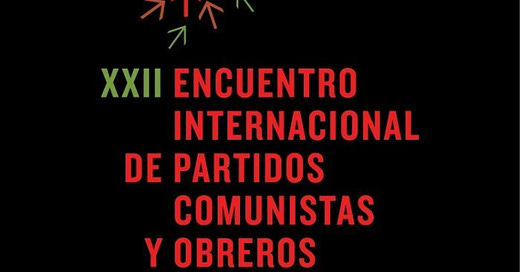Some 145 delegates of 78 communist and workers’ parties from 60 countries met from the October 27 to October 29, 2022, in Havana, Cuba.
In welcoming the delegates, Roberto Morales Ojeda, Secretary of the Communist Party of Cuba, asked: What unites us? He responded: anti-imperialism and the common determination to attain a world of peace and greater social justice.
Final Declaration
The Final Declaration of the 22nd International Meeting of Communist and Workers’ Parties declared that “imperialism imposes an unjust and unsustainable international order. It intensifies exploitation and worsens the conditions of the working class and the peoples. It generates increasing conflicts and wars, and it makes difficult the solution of global problems.”
As a consequence of the increasing aggressiveness of imperialism, we confront today, the Declaration asserts, the intensification of the arms race, the expansion of NATO, the heightening of tensions and military conflicts, the r…



